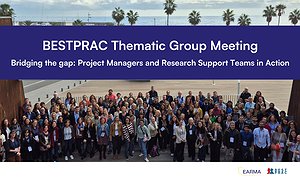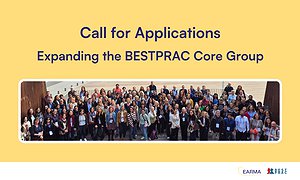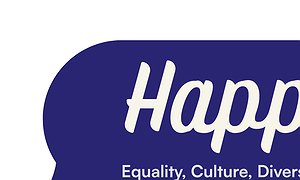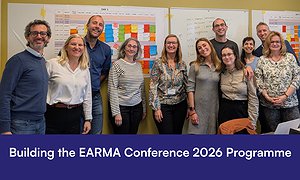EARMA has been involved since 2018 in European collaborations in the areas of ethics, research integrity and responsible research and innovation.
Firstly, the EARMA Ethics and Research Integrity Network (ERION) was established in 2018 in collaboration with DG R&I Ethics and Research Integrity Sector of the European Commission.
Why ERION is different from the other groups on ethics and integrity?
Many groups, networks and initiatives exist such as ENRIO, EUREC, ENERI, COPE, NERQ (see also Section III in this community report). The Embassy of Good Science acts as a one stop shop for good practices on projects promoted or financed by the European Commission. However, the special character of ERION in the European landscape is its focus on the practical and implementation side of Research Ethics and Integrity. The community is for all those that need to ensure compliance, efficiency, functionality, fairness and robustness in the practices and processes in their organisation. More information EARMA ERION 2021 Dissemination event.
EARMA has partnered since 2019 in the Standard Operating Procedures for Research Integrity (SOPs4RI) Horizon 2020 project. The farewell to this project in December 2022 comes together with new completed tools and functionalities for the online Toolbox. The online toolbox is a structured collection of easy-to-use Standard Operating Procedures and Guidelines that Research Performing and Research Funding Organisations can use when developing their own Research Integrity Promotion Plans.
The SOPs4RI toolbox also contains existing inspirational procedures and guidelines as examples, targeting the individual level, and resources related to crafting institutional plans in the form of templates and documents describing how a specific institution will foster and promote responsible research practices, avoid detrimental practices, and handle misconduct, taking into account disciplinary, organisational and national differences. Several members from the EARMA ERION group were official pilot institutions in SOPs4RI. You can find more information in Pilots Institutions – Testimonials here.
Some important outcomes from the SOPs4RI project:
Since October 2022 and January 2023, EARMA is also an official partner in the IRECS Horizon Europe project (Improving Research Ethics Expertise and Competences to Ensure Reliability and Trust in Science) and PATTERN Horizon Europe project (Piloting open and responsible Activities and Trainings Towards the Enhancement of Researchers Networks). EARMA contributes to several tasks in the two projects, specifically:
- identification of main research ethical and legal challenges, and related needs and gaps
- research integrity training implementation and sustainability of good practice
- strengthening links between the academic research ethics/research integrity expert community and the research administrator and manager community.
IRECS mission
The research ethics process is facing increasing challenges at a global level. New and emerging technologies present challenges to ethics reviewers who may be unskilled in the relevant fields, increased internationalisation of research has led to fears of ethics dumping, and there is a lack of standardisation across Europe and the world. IRECS will develop awareness of research ethics and sustainable, multi-purpose, multi-language interactive training programmes for different users.
PATTERN mission
PATTERN has identified 8 main transferable skills for researchers in the context of Open Science and Responsible Research and Innovation namely: Research Integrity, Open Access, FAIR data management, Citizen Science, Gender, non-discrimination and inclusion in research, Dissemination and Exploitation of results, Science Communication, Management and Leadership. These trainings will strengthen transferable skills for researchers with the ultimate goal to empower higher education institutions and research organisations to embrace a transformative process to improve the excellence of the science conducted, the capacity within the European Research Area to tackle societal challenges and the interaction between science and society.
The role of EARMA in the European landscape of responsible research and innovation is evolving throughout the years and the partnership with European and international actors is key in keeping up-to-date with the latest available knowledge in the field and collaborating with the main European stakeholders and policymakers.
All in all, it should be stressed that ethics is not simply a matter of administrative compliance. The way of thinking is significantly changing in institutional settings to forward looking research integrity policies and responsible research support offices that have an overview of the interconnected and fast changing landscape in research covering important areas such as responsible research environments, research integrity education and training, responsible supervision and leadership and many others.

 All news
All news



